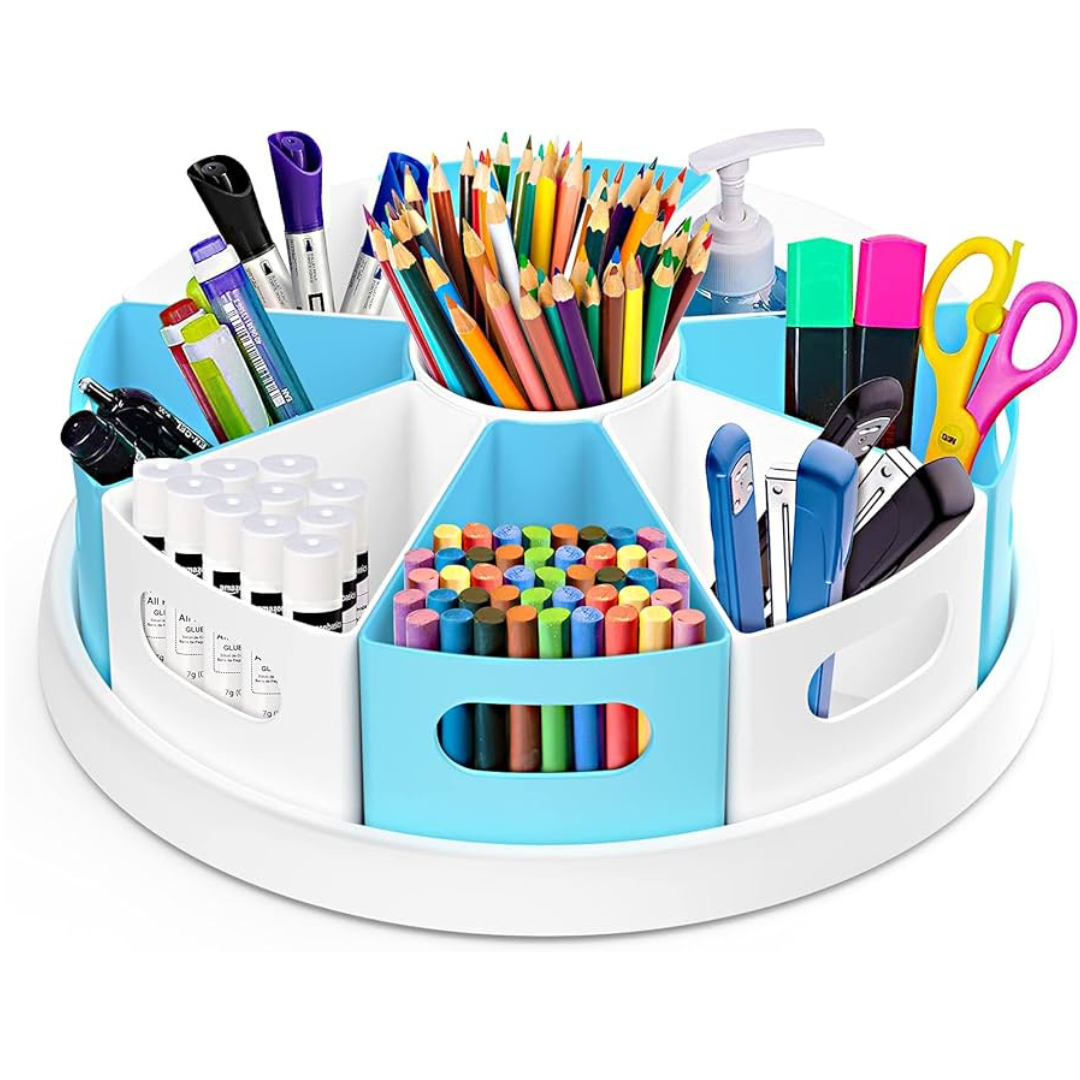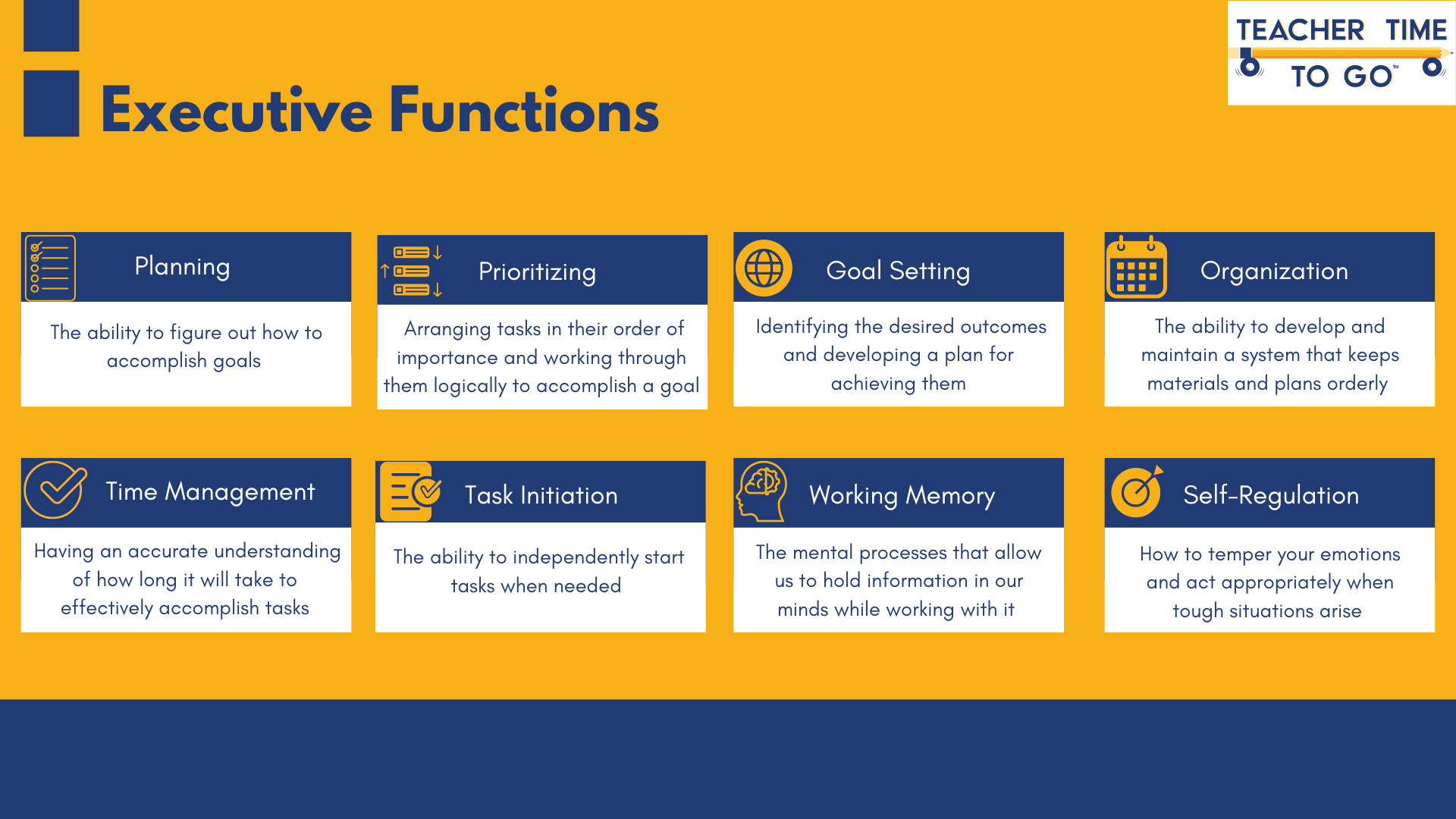Executive Functioning is best understood as the skills we use every day to learn, work and manage daily life. You can think of the term as the skills required to execute tasks.
This is the fourth post of an 8-part series highlighting Executive Functioning Skills. You will find definitions, parent recommendations and strategies that can be implemented for immediate support at home for families or in the classroom for teachers. My hope is that by helping you to understand what Executive Functioning is, you’ll be able to best support your child!
This post is all about Organization. I think a great definition for organization is the ability to develop and maintain a system that keeps materials and plans orderly.
First and Foremost
People have so many different ideas of organization, but the most important thing is that the organizational style works for you and your child. This is not a one size fits all. Organization is customized to meet individual needs. So remember, this is trial and error! What may work for one of your students may not work for another. Being organized can help your students be more efficient and less stressed, as they are better able to manage their time and resources. It also helps them to remember important information and stay on top of their tasks, which can lead to greater success and achievement.

Overview
Organization may look like: creating a schedule, using checklists, and decluttering.
1. Creating a schedule can help you plan your time effectively and stay on track with your tasks. Use a planner or a calendar app to schedule your activities, appointments, and deadlines.
2. Checklists can help you break down complex tasks into smaller, manageable steps. Create a checklist for your daily tasks or your long-term goals, and cross off each item as you complete it. It is vital for you as the parent to guide this and model it, as your child may not know how to create a checklist to begin.
3. Decluttering your space can help you focus and feel less stressed. Take some time to clean out your room or workspace, and get rid of anything you don’t need or use.
When I was a 2nd grade teacher, my classroom would have a “desk inspection” every Friday afternoon during the last 30 minutes of the day, I would put on music and all of the students organized their desks, workspace, and classroom. This was SO incredibly helpful for their self-esteem and confidence and set them up for success on Mondays when they came in with a clean slate and organized. Together as a class, we created a checklist of things that needed to get done: ie: sharpen pencils, organize folders, throw away old paper, etc. And I put it in a protective sleeve and they checked things off as they went!
By helping your child find an organizational strategy that works for them, all of the pieces will fall into place!

Resource Recommendation
I love this rotating desk organizer. I recommend this because it teaches so many skills to kids including organization and responsibility. This is in their room or space and has their materials in it. Everything is one place and when materials get low, it is their responsibility to ask for more. The organization benefits of this item is unmatched and you can store about 8-10 different things.
Final Thoughts
Here at TT2G, we are working with about 500 families in the local community and approximately 75% of those families request some sort of Executive Functioning Support. This set of skills is a highly sought after service!
The biggest takeaway for organization is to find what works for your child, model, discuss and repeat! Exposure and repetition are key!
Next up in the series we will be discussing the skill of Time Management.
As a reminder, we will go into detail about each of these with a specific (user friendly definition) and support strategies! This chart below will guide the series!

If you’d like to review the other posts in the series, you can find them here: Executive Functioning Overview, Prioritization.
Have an Organizational strategy that works for you? We’d LOVE to hear from you!
Next up, Time Management!
Live.Laugh.Learn,
Jenn

